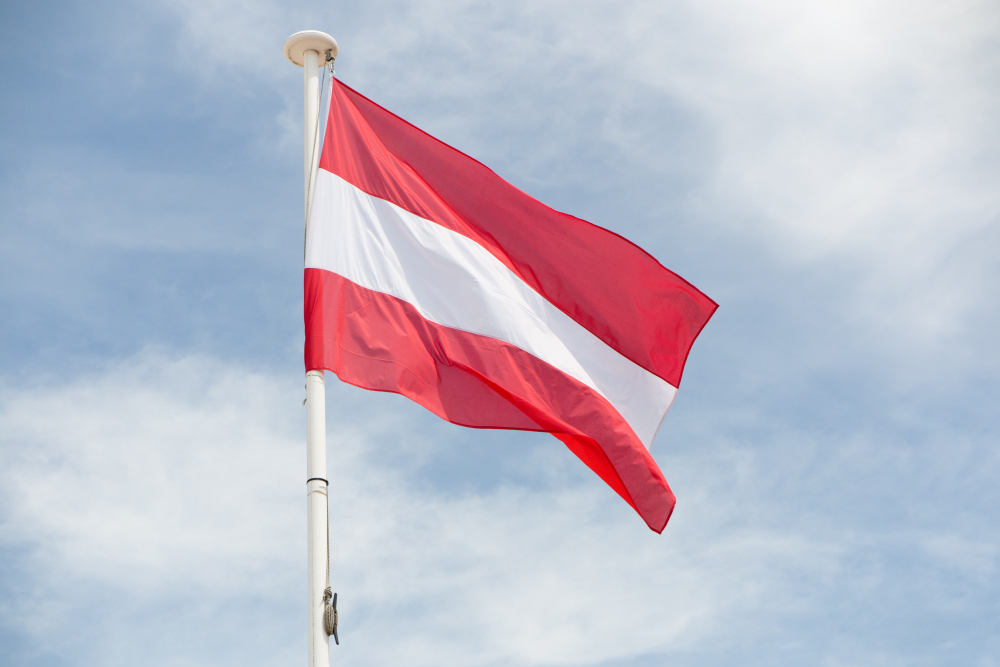Your Chances of Obtaining an Austrian Work Visa Are Higher If You Are in One of These Professions
KEY TAKEAWAYS
1. Austria reported 196,400 job vacancies during the first quarter of 2023.
2. With an ageing population, Austria relies heavily on foreign workers, similar to other Western European countries.
3. The current minimum wage in Austria starts at an estimated €1,500 per month.
In the first quarter of 2024, Austrian enterprises registered an average of 196,400 job vacancies, according to Statistics Austria, the country’s official statistics agency. This figure represents an 8.5% increase from the previous quarter's 181,000 vacancies.
Tobias Thomas, General Director of Statistics Austria, noted that this is the first increase recorded in a year, with the most job offers in the service sector. Of the 196,400 vacancies, 113,200 were in the service sector, 46,100 in manufacturing, and 37,100 in the public sector.
Although these first-quarter figures are lower than those of 2022 and 2023, they are higher compared to pre-pandemic levels. As of April 2024, Austria's population is estimated at about 9.17 million, with around six million considered of working age.
Austria Needs Foreign Workers to Address Labour Shortages
The average population age in Austria is 43.4 years, and the total fertility rate (TFR) in 2023 was 1.41. In 2022, Austria experienced a birth deficit for the third consecutive year, with 9,909 more deaths than births. Due to these demographic challenges, Austria relies heavily on foreign workers to support its economy. Foreigners aiming to live and work in Austria can benefit from these labour shortages and begin the process of obtaining a work visa.
According to the 2023 EURES report on shortages and surpluses, some of the occupations most in need of skilled workers include:
- Electrical mechanics and fitters
- Agricultural and industrial machinery mechanics and repairers
- Motor vehicle mechanics and repairers
- Sheet metal workers
- Welders and flame cutters
- Spray painters and varnishers
- Plumbers and pipefitters
- Roofers
- Carpenters and joiners
- Cooks
- Nursing associate professionals
- Construction supervisors
- Physical and engineering science technicians
- Mechanical engineering technicians
- Electronics engineering technicians
- Electrical engineering technicians
- Systems analysts
- Midwifery professionals
- Generalist medical practitioners
- Engineering professionals
Some of these shortage occupations are among the better-paid ones. According to the Economic Research Institute (ERI), the average pay for medical general practitioners in Austria is €162,974 per year and €78 per hour, while registered nurses earn €69,552 per year and €33 per hour. Electrical engineers earn an average of €75,384 per year and €36 per hour, electrical repairers earn €65,008 per year and €31 per hour, and automotive mechanics earn €43,001 per year and €21 per hour. Pipefitters have an average pay of €56,843 per year and €27 per hour, while fitters earn €31,851 per year and €15 per hour, and plumbers earn €53,688 per year and €15 per hour.
The minimum wage in Austria starts at an estimated €1,500 per month, while the average wage is €2,182 per month, according to Expatica.
Is a Visa Necessary to Work in Austria?
To work in Austria, non-Austrian citizens need to apply for a D Visa, a long-term visa, with the exception of residents from within the EU and EFA. Highly skilled workers from other countries can apply for a Red-White-Red card, which grants a work and residence permit for up to two years. Travellers to Austria on a Schengen Visa are not eligible to work or convert their short-term visa into a long-term visa for employment. Foreign nationals should apply for a work visa from their country of residence. According to EURES, as of October 2022, there were over 900,000 foreign workers employed in Austria.
How Much Does It Cost to Live in Austria?
Austria is known for its higher wages and living conditions, but it also has higher living costs. According to Numbeo, Austria is the world’s 19th most expensive country to live in and Europe’s 7th. Living costs vary depending on the location and household size. The estimated monthly costs for a single person, excluding rent, are €1,015, while a family of four incurs estimated monthly expenses of €3,458.7. Rent for a one-bedroom apartment in the city centre is projected at €831.17, while outside the city centre it costs €676.44. For a three-bedroom apartment, the estimated cost is €1,501.28 in the city centre and €1,185.30 outside the city centre.

